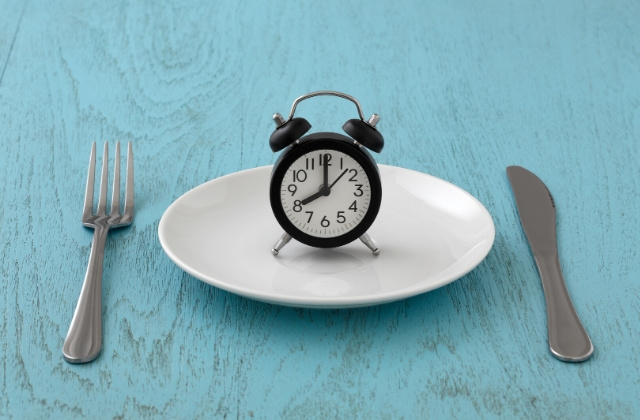When it comes to losing weight, people are willing to try whatever they think will bring them the fastest results in the easiest manner. What they fail to realize is that not all of them are designed for them or suited for their bodies. Fasting is one such popular method. While it has its share of benefits, there are certain things people should be aware of when they venture into fasting. In this article, we will discuss 11 tips to fast safely. Read on to find out everything that you need to know about fasting safely.
11 Best Tips for Fasting the Healthy Way
Ease Into It
You wouldn’t run a full marathon if you’ve only just started jogging a mile or two per week, and the same holds true for fasting. Trying to fast when you are hardly used to skipping any meals will make things miserable. Instead, work up to it. Undertake shorter fasts and gradually extend the quantity of your time between eating.
Be Mindful Of What You Consume Once You Do Eat
Choosing to fast intermittently shouldn’t translate into downing pizza and chocolate croissants once you do eat. Indeed, doing so may backfire and cause weight gain (to say nothing of the headaches, bloating, and gastrointestinal distress which will accompany it). Rather, pile your plate with whole foods and use mindfulness to tap into your body’s inner hunger cues. Pause between forkfuls, take small bites, and ask yourself if you’re really hungry or simply bored, thirsty, or emotional.
Don’t Fast For Long
For most of us, this is simply unsustainable. Work schedules, social commitments, wanting to refuel after a workout—even maintaining a healthy partnership—can easily conflict with the principles of time-feeding. More importantly, fasting for long periods of your time will deprive you of the vitamins, minerals and other nutrients you would like to function properly—period.
Adjust Your Workouts
As alluring as fasting may be, the fact is you’ll be depriving your body of the nutrients it needs to operate, potentially resulting in decreased focus, irritability, fatigue, nervousness, dizziness and, naturally, diminished energy. Thinking you’ll hit up your favorite power weight lifting aerobic class after not eating for twenty-four hours straight could wreak havoc on your biological system, crank up your production of cortisol, and leave you exhausted. In short, if you’re intent on fasting, your workouts will have to be adjusted. Walking and gentle yoga will be far more palatable—and less likely to push you into such a ravenous state that you’ll be robbing your children’s stash of holiday candy.
Hydrate
Fasting commonly leads to dehydration. Why? Your body isn’t getting any fluids from food. Ensure you’re drinking lots of water, or choose sparkling mineral water: the carbonation might help ease the heartburn that always accompanies fasting.
Take A Multivitamin
Taking a multivitamin is usually a decent idea, in that it gives you a lift of nutrients you’ll not be getting enough of through diet alone. It’s even more imperative when you’re fasting.
Consult Your Physician Before You Opt Anything
Whether you’re twenty-five or fifty, going without food for any significant amount of time presents potential problems, including muscle aches and mood changes. And while children, pregnant and lactating women, diabetics, and therefore the elderly should stay far, far-off from the entire idea of fasting, you too—even if you don’t fall under these groups—should get your doctor’s approval before abstaining.
Stop Fasting If You Feel Unwell
During a fast, you’ll feel a bit tired, hungry and irritable — but you ought to never feel unwell. To keep yourself safe, especially if you’re new fasting, consider limiting your fast periods to 24 hours or fewer and keeping a snack available just in case you start to feel faint or ill. If you are becoming ill or concerned about your health, make certain you stop fasting immediately. Some signs that you simply should stop your fast and seek medical help include tiredness or weakness that forestalls you from completing daily tasks, also as unexpected feelings of sickness and discomfort.
Eat Enough Protein
Many people start fasting as a way to try to slim down. However, being in a calorie deficit can cause you to lose muscle additionally to fat. One way to reduce your muscle loss while fasting is to make sure you’re eating enough protein on the times you eat. Additionally, if you’re eating small amounts on fast days, including some protein could offer other benefits, including managing your hunger. Some studies suggest that consuming around 30% of a meal’s calories from protein can significantly reduce your appetite. Therefore, eating some protein on fast days could help offset a number of fasting’s side effects.
Eat Plenty Of Whole Foods On Non-fasting Days
Most people who fast try to enhance their health. Even though fasting involves abstaining from food, it’s still important to keep up a healthy lifestyle on days once you aren’t fasting. Healthy diets based on whole foods are linked to a good range of health benefits, including a reduced risk of cancer, a heart condition, and other chronic illnesses. You can make sure your diet remains healthy by choosing whole foods like meat, fish, eggs, vegetables, fruits, and legumes once you eat.
Consider Supplements
If you fast regularly, you’ll miss out on essential nutrients. This is because regularly eating fewer calories makes it harder to satisfy your nutritional needs. In fact, people following weight-loss diets are more likely to be deficient during a number of essential nutrients like iron, calcium and vitamin B12. As such, people who fast regularly should consider taking a multivitamin for peace of mind and to help prevent deficiencies. That being said, it’s always best to get your nutrients from whole foods.
Happy fasting!
Sources:
- https://www.ncbi.nlm.nih.gov/pmc/articles/PMC6128599/
- https://www.medicalnewstoday.com/articles/322293
- https://health.clevelandclinic.org/5-tips-for-fasting













